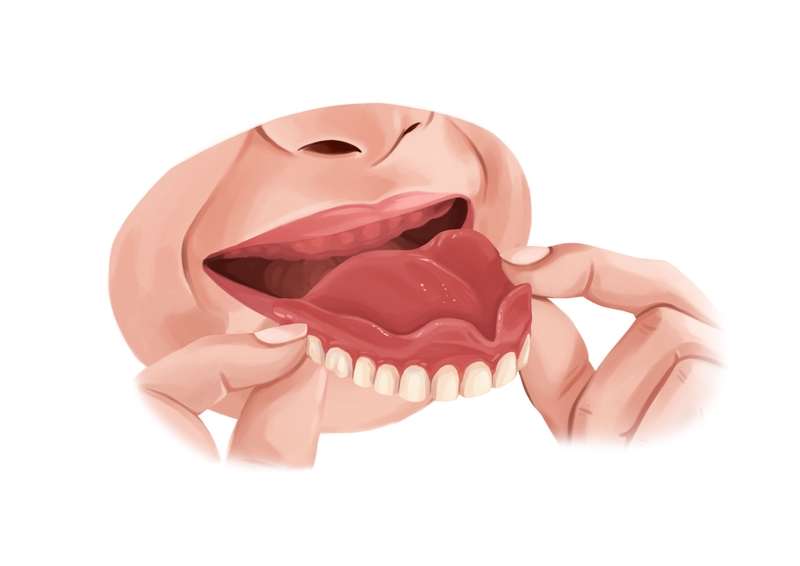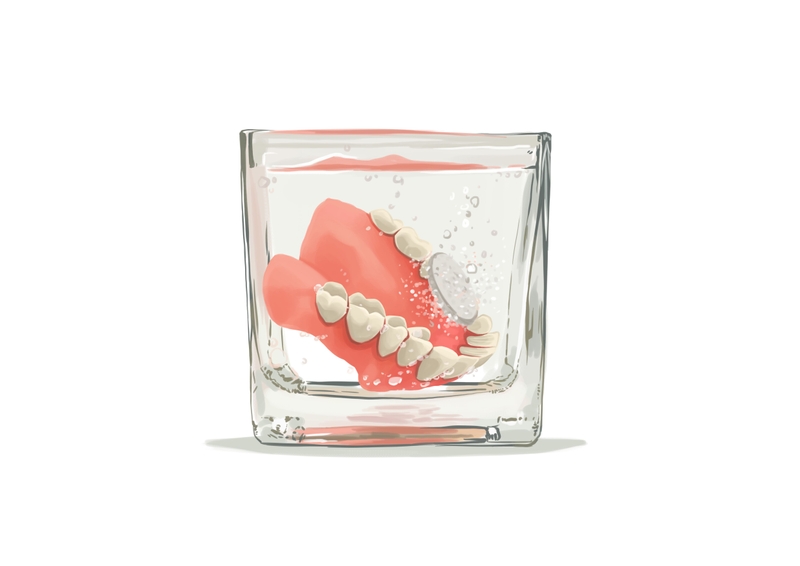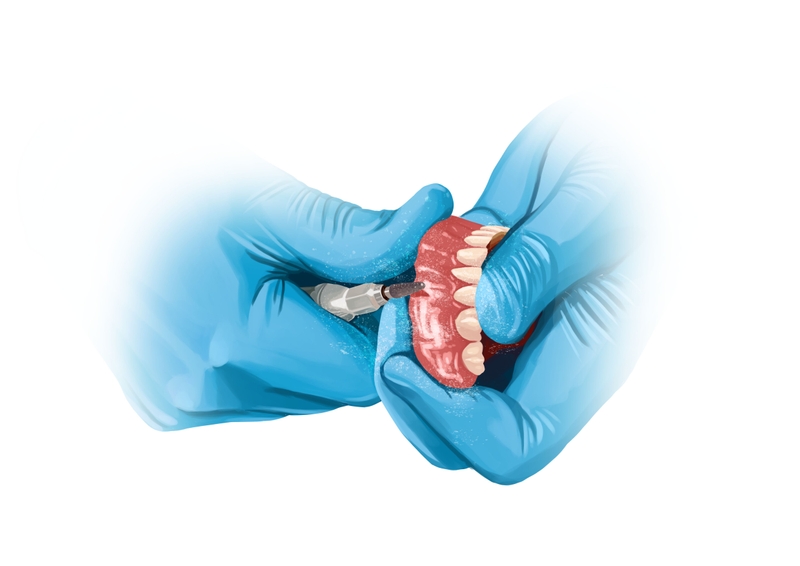- Oral sores are a common condition among people who have received new dentures. They occur when the denture moves in your mouth.
- If gum sores keep on recurring, you may need to have the surface of the denture smoothed or have denture relining. A dentist can do this for you.
- Poor denture hygiene and wearing dentures overnight can provoke sores.
Use Authority Dental to find an affordable denture dentist in your city, or get a dental plan and save big on all dental procedures, including dentures.
What should you do if your dentures are causing sores? Here's everything you need to know.
Dentures sore causes

Picture by Authority Dental under CC 2.0 license
Sore spots from dentures can be caused a couple of ways, but each has to do with how the denture forms to the gum tissue and movement created by speaking and chewing.
Adjustment period
There is an adjustment period you must tolerate after receiving dentures. If you have immediate dentures, this adjustment period can be lengthy. An immediate denture is one that is placed directly following tooth extractions. This is common practice and the immediate denture is meant to be temporary, though many patients keep them for years.
After teeth are extracted, the bone goes through a remodeling process. It changes over the following six months, which can affect how your denture fits to your gum tissue and bone. Denture adjustments during this time are common and even frequent.
There is also just an adjustment period as you get used to how dentures feel and work. Eating with dentures takes practice and you may develop sore spots as you get used to using your dentures.
Poorly fitting dentures
You can also develop sore spots if your dentures fit poorly. Remember, the bone changes over time. Once enough remodeling has occurred, your dentures will likely not fit well and will be very loose. A loose denture rubs the gum tissue, creating sore spots and tender gums. If this occurs after you’ve had your dentures for some time, you may need a new denture or a reline of your current denture.
Dentures may also develop broken teeth, cracks, and chips after much use. Just like your natural teeth, this is common and can be fixed. It’s important that you not try to smooth the denture yourself as this could void any warranty you might have with the dentist who made the dentures.
Bacteria
Dentures must be properly cared for or else bacteria will build up under the denture. A denture must be brushed at least once a day, on both the outside and inside of the denture.
Also, you should not wear your dentures overnight or while sleeping. Your gum tissue needs time to breathe. Also, wearing a denture at night will decrease your saliva production and create a dry mouth. Bacteria grow quickly in this setting.
Not properly caring for your denture can cause denture wearers to get a bacterial or yeast infection in their oral cavity.
Best ways for painful dentures
If you are experiencing painful gums because of your denture, you might try alleviating your symptoms with at-home remedies until you can seek professional help.
At-home remedies

Picture by Authority Dental under CC 2.0 license
A warm salt-water rinse will help alleviate pain and also help your gum sores to heal quickly. Use one teaspoon of salt mixed into eight ounces of water. You can also soak your dentures in the salt-water solution to make sure they are free from bacteria.
Cloves are also helpful in alleviating oral pain. Some drug stores sell a cream containing cloves, or you can use a clove and oil mixture and apply it to the sore areas.
Most drug stores also offer small pads you can place inside the dentures to make the area more soft and cover any sharp spots. These are a temporary solution and you should see your dental provider to smooth the rough or sharp spots inside your denture.
Professional help

Picture by Authority Dental under CC 2.0 license
If you have sore spots from your denture, you will likely need to seek help from an emergency dental professional as it means your denture is rubbing your gum tissue. While at-home remedies can be a temporary solution, your dentist can smooth areas to keep the sore spots from recurring.
If more than one or two areas are causing a problem, your dentist may recommend a complete reline of your denture. The reline forms to your existing bone and gum tissue and will make your denture fit better.
If you experience severe problems with your dentures, do not try to reline your dentures yourself. Instead, ask your dentist to fix dentures.
How to prevent dentures sore?
In the initial transition to dentures, you may not be able to prevent sores. This is a normal process and will take a period of adjustment. However, there are some things you can do to prevent sores from getting worse or happening in the future:
eat soft foods,
avoid sticky foods,
use denture adhesive, which acts as a buffer and can cover sharp spots,
clean dentures daily,
do not wear your denture overnight.
FAQ
What do denture sores look like?
A denture sore presents as a red area with a white or yellow senter. The tissue around the spot will be very red and inflamed.
How sore gums can affect your denture experience?
Sore gums make for a very unpleasant denture experience. They can make it unbearable to wear a denture, causing many people to go without them. Of course, this will impact your ability to eat proper nutrition.
Are sore gums the sign you need new dentures?
Sore gums may be a sign you need new dentures if they are caused by a loose, ill-fitting denture. Since the jawbone remodels over time, it is common to need more than one denture. Many patients start with an immediate denture and then have a new one fabricated months or years later.